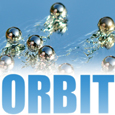Differentiation: Difference between revisions
SimonKnight (talk | contribs) (Created page with "{{Rinfo |title= Differentiation |topic= Differentiation |subject= primary, science, teacher education |resourcenumber= TE0047 |age= |content= Differentiation Techniques.doc - ...") |
SimonKnight (talk | contribs) No edit summary |
||
| Line 15: | Line 15: | ||
|format= | |format= | ||
|strategy= The small group nature of this task allows teachers to share ideas, and attempt to conceptualise two different types of differentiation, together. It also affords the sharing of best practice in differentiation. Teachers are first asked to consider differentiation ‘by task’ by thinking about self-sustaining activities which pupils could manage with little support. They are also asked to consider differentiation by outcome, and ‘hierarchies of achievement’ for particular topics. The practical nature of the task offers a concrete outcome for teachers to take away and use in their practice. The resource could be used as a prompt to start teachers off, a comparator for teachers working on similar topics, or just as an additional set of possibilities. | |strategy= The small group nature of this task allows teachers to share ideas, and attempt to conceptualise two different types of differentiation, together. It also affords the sharing of best practice in differentiation. Teachers are first asked to consider differentiation ‘by task’ by thinking about self-sustaining activities which pupils could manage with little support. They are also asked to consider differentiation by outcome, and ‘hierarchies of achievement’ for particular topics. The practical nature of the task offers a concrete outcome for teachers to take away and use in their practice. The resource could be used as a prompt to start teachers off, a comparator for teachers working on similar topics, or just as an additional set of possibilities. | ||
|resources= | |resources= Differentiation Techniques.doc | ||
}} | }} | ||
[[Category:Primary]] [[Category:teacher Education]] | [[Category:Primary]] [[Category:teacher Education]] | ||
Revision as of 09:51, 18 July 2012
About. Differentiation Techniques.doc - practical examples of differentiation applied to the science curriculum.
Pedagogical content. The small group work(ta) nature of this task allows teachers to share ideas, and attempt to conceptualise two different types of differentiation(ta), together. It also encourages teachers to share practice(i)s in differentiation. Teachers are first asked to consider differentiation ‘by task’ by thinking about self-sustaining activities which pupils could manage with little support. They are also asked to consider differentiation by outcome, and ‘hierarchies of achievement’ for particular topics. The practical nature of the task offers a concrete outcome for teachers to take away and use in their practice both day to day, and in curriculum planning(topic). The resource could be used as a prompt to start teachers off, a comparator for teachers working on similar topics, or just as an additional set of possibilities. (edit)
| Resource details | |
| Title | Differentiation |
| Topic | [[Topics/Differentiation|Differentiation]], [[Topics/Curriculum planning|Curriculum planning]] |
| Teaching approach | [[Teaching Approaches/Differentiation|Differentiation]], [[Teaching Approaches/Group work|Group work]] |
| Learning Objectives | By the end of the session you should be able to:
|
| Subject | [[Resources/Teacher education|Teacher education]], [[Resources/Primary|Primary]], [[Resources/Science|Science]] |
| Age of students / grade | [[Resources/Primary|Primary]]
|
| Files and resources to view and download | Differentiation Techniques.doc
|

